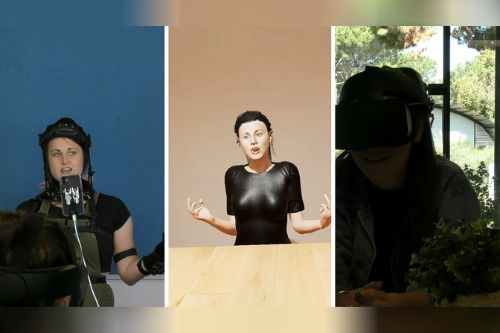
COVID-19 has seen video communication take on a whole new level of importance in our daily lives, especially when it comes to critical staff meetings.
Now new research from Edith Cowan University shows how real-time virtual reality (VR) could transform interview-based communication forever, having massive implications for universities and schools.
ECU psychology researcher Dr Shane Rogers has been investigating the use of high-fidelity virtual puppet avatars for interviewing human subjects.
The findings of the research, which are set to be published later this year, have the potential to be applied in counselling, recruitment, criminal investigations and even dating.
VR-based social interaction has not been researched previously and takes advantage of recent developments in motion capture technology and virtual production software.
And early findings indicate that VR chat has huge potential.
Around 20% of participants said that they enjoyed ECU’s VR chat even more than face-to-face interaction.
VR chat uses motion capture technology to map a person’s body and face onto a virtual character that is then broadcast in real time.
The research aims to examine feelings of presence, comfort, awkwardness, and the extent of self-disclosure with high-fidelity virtual puppet chat compared with face-to-face chat.
Dr Rogers said he and his research team have been seeing a growing shift towards online teaching in schools and universities.
“The application of the research I am doing to that context is to enhance the online experience. Rather than watching videos online, I envisage a future where we don our headsets and we attend class in the virtual world,” he told The Educator.
“This should make online learning more engaging. My research will hopefully contribute to that upcoming shift in online education”.
Dr Rogers said an interesting early finding was that many participants preferred VR chat over face-to-face when they were disclosing negative personal information. He says this has implications for educators who want to gauge students’ mental health.
“I think VR chat has the potential to encourage students who would not usually seek help to engage with help services when they need it,” Dr Rogers said.
“I envisage a room that a student can go to where they can don a VR headset and chat with a virtual character who is technically a real mental health professional [as the character is being puppeteered by that professional]”.
Dr Rogers said that there will be a sense of human connection, but at the same time a heightened sense of anonymity.
“It could easily be set up in a way to achieve that anonymity”.


